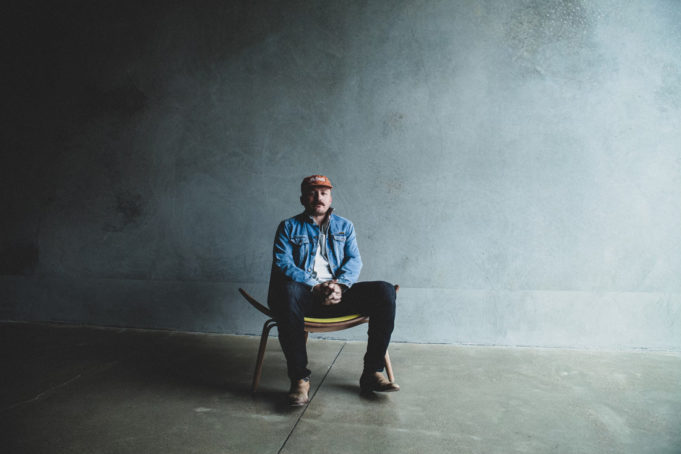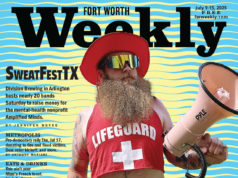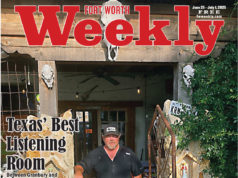For working musicians, a canceled gig is rarely a good thing, and Grady Spencer’s view on them is no exception. When I sat down with him at a local coffeeshop last week to talk about Wait, his new album that drops on Jan. 28, he was waiting to hear the on/off status of shows he had booked for the coming weekend.
“I just found out an hour ago that I’m probably gonna have to cancel,” he said. “I think at this point, everyone’s like, ‘It’s part of it.’ ”
As it happened, Spencer posted to his Instagram the very next day that the shows at Arcadia Live in Kerrville and in Angleton at the Dirty South were canceled. While a pair of Fort Worth shows at The Post on Feb. 12 are still on, along with his band’s tour through Mississippi, Georgia, and Tennessee, Spencer has accepted that COVID still keeps bookings up in the air, so to speak. The pandemic still sucks, in other words, and it will continue to do so for the foreseeable future. Yet Spencer is also well aware that his new album would not exist as it is if not for the pandemic’s Great Pause. Waiting for the world to reset, to reopen, wasn’t entirely bad, it turns out.
That’s an easy thing to say in January of 2022, of course. Last January, Spencer was begrudgingly teaching himself to livestream, but the January before that, he was in the midst of something far more exciting.
“January 3rd, 2020, was my last day of working construction, when I decided to do music full-time,” he said, “and I had two months of being like, ‘This is what I should’ve been doing for years.’ And then March hit. And it was just like, ‘You’re done.’ ”
Spencer, like all of us, had a lot of time on his hands, which allowed him to reflect on his life in a way he might not have while crammed in a van between Denver and Chicago. His focus changed, and so did his direction for his follow-up to 2019’s Celebrate.
“I think production-wise, we did exactly what I wanted to do, which was work with a good friend of mine, Rhys Murphy,” Spencer said. “But lyrically … this album turned out to be way more introspective than what I was willing or hoping for.”
In effect, the pandemic made him present to what was all around him, from life’s mundane inevitabilities to the serious tensions roiling to the surface of American society.
“Getting old, being in your mid-30s, and viewing the world — I’m not a huge politics guy, but I obviously see the madness in everything around us. … I want to have empathy and love the world better. Step back. Create space. And I think the album is me taking in the craziness of this world.”
Creating space is something of a motif in Wait, certainly so in its first single, a song about going to therapy appropriately called “Therapy’s Good.”
“The thing that I’m really pumped about,” Spencer said, “is that I keep getting messages from people that are saying, ‘Thank you for writing this.’ I think growing up in the construction world and now this country music world, you see hyper-machoism and nobody wants to talk about feelings, and I get it. I grew up in West Texas, and we don’t talk about that stuff. But then, you know, when I decided to quit construction, it was solely off my wife telling me, ‘You need to talk to somebody. You’re spreading yourself too thin.’ ”
Prior to quitting construction, Spencer was doing 40- to 50-hour weeks on the job site and then two or three shows every weekend. “So, there was no time for anything else. I was getting ready to lose it, and I went to therapy, and this guy helped me sort it out. … For me, therapy was a big deal in my life. … It impacted my life for the better. I guess I want to tell people about it.”
Time and our society’s routine for dealing with COVID will tell who gets to hear the song played live, but Spencer is hopeful and excited, despite a career trajectory that was suddenly crimped into a different vector by the pandemic.
“People ask musicians what will it look like for you to make it?” he said. “And I know this much. I don’t wear a hard hat every day anymore. As far as I’m concerned, I’ve already done it. And I’m going to continue on, providing for my family, doing creative stuff. And the thing of it is, I do like doing construction, and if I have to go back to it, I’ll go back to it. But whether you’re lifting two-by-fours or amplifiers, it’s still rough on your back. But I want to lift amps.”












